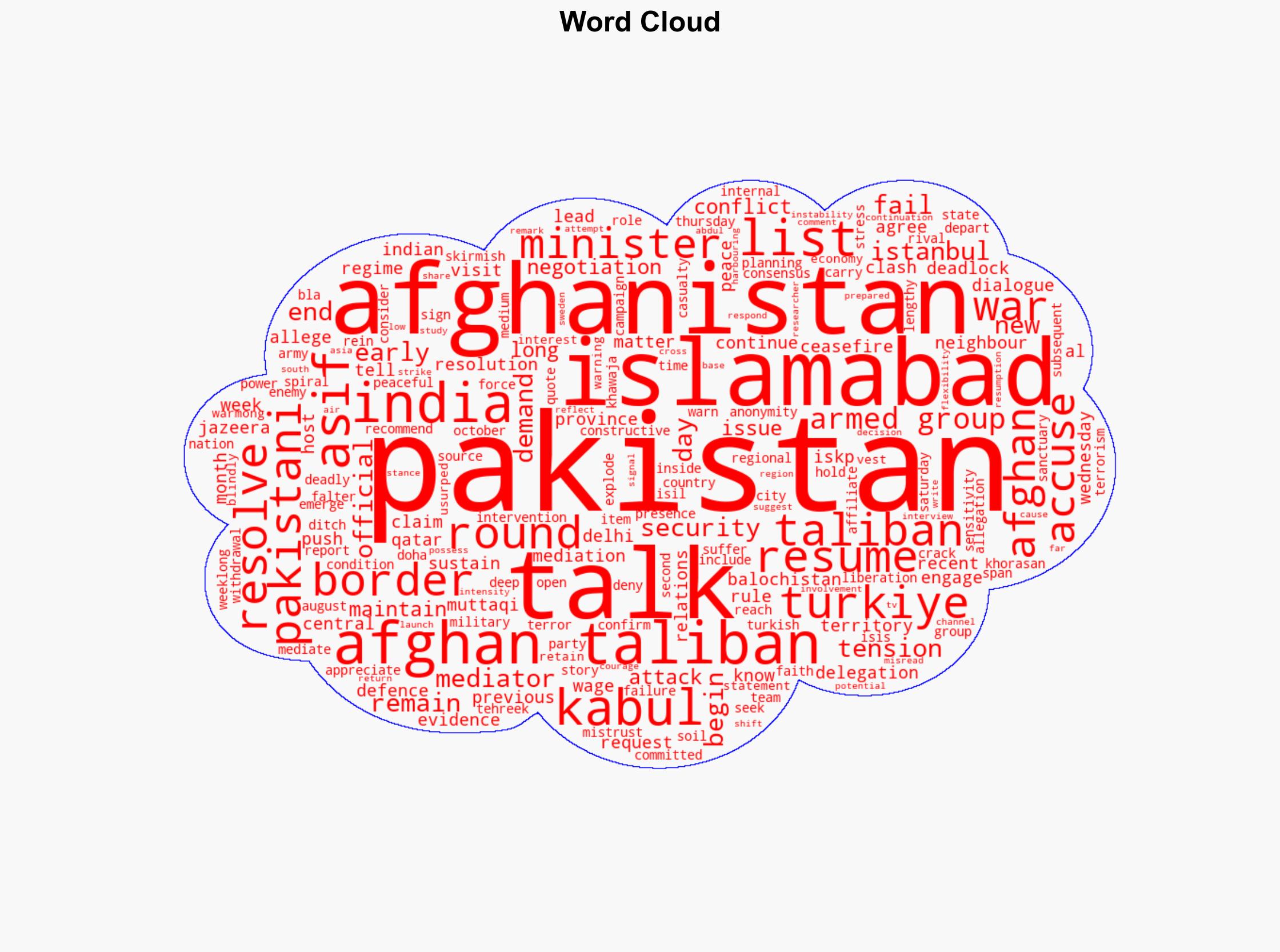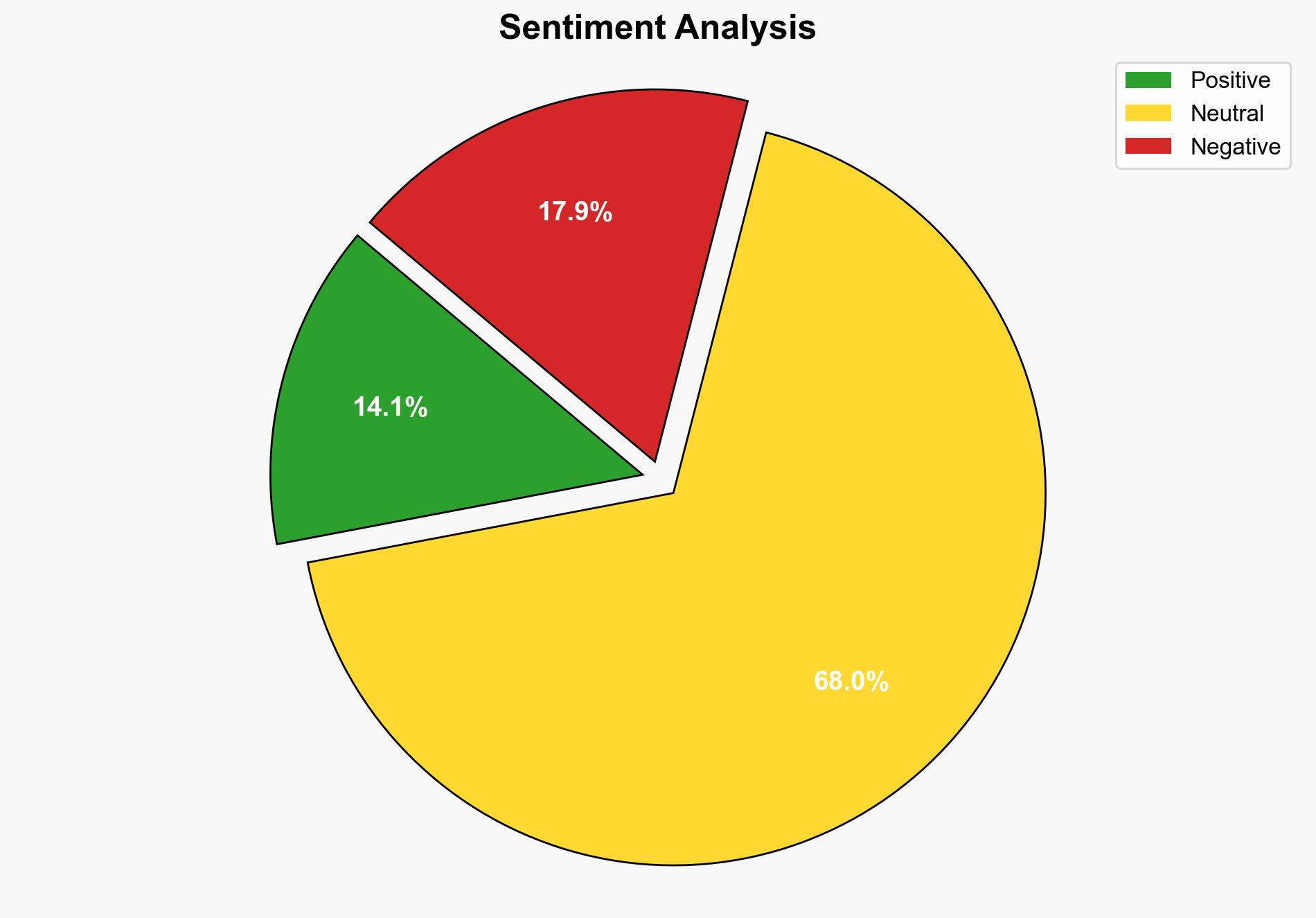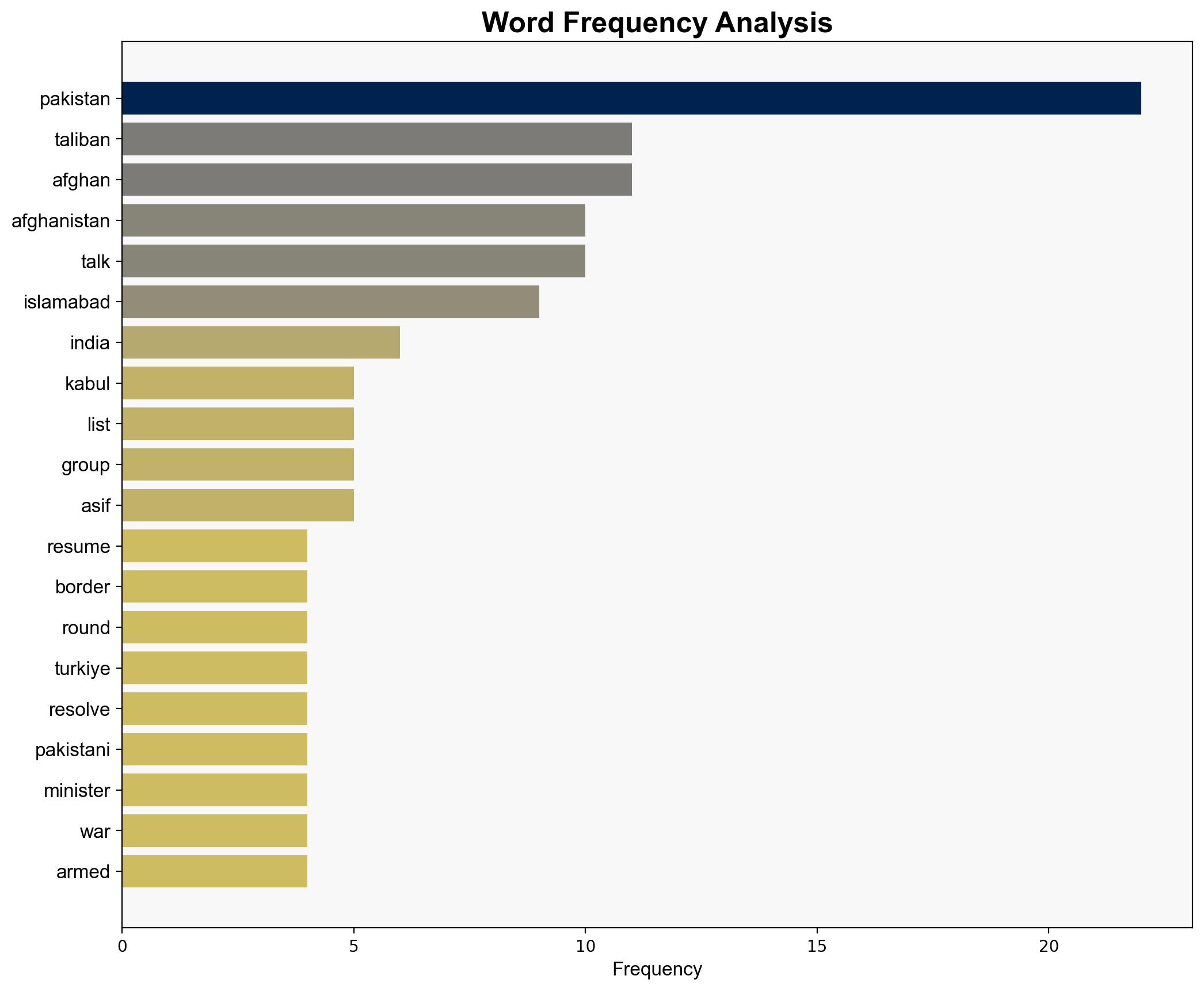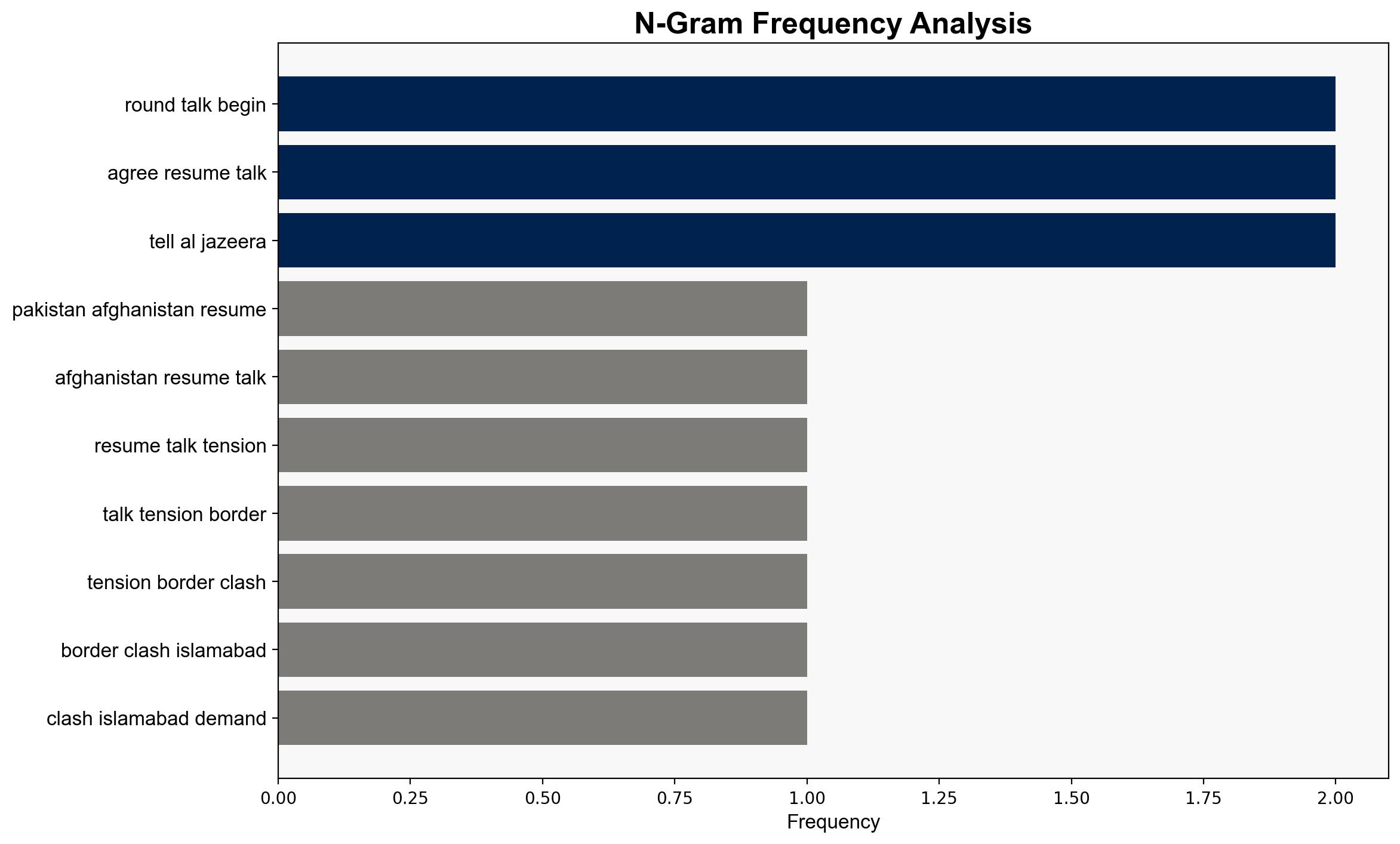Pakistan Afghanistan to resume talks amid tensions over border clashes – Al Jazeera English
Published on: 2025-10-30
Intelligence Report: Pakistan Afghanistan to resume talks amid tensions over border clashes – Al Jazeera English
1. BLUF (Bottom Line Up Front)
The strategic judgment indicates a medium confidence level that the resumed talks between Pakistan and Afghanistan may temporarily de-escalate tensions but are unlikely to achieve a lasting resolution due to deep-seated mistrust and conflicting interests. The most supported hypothesis suggests that these talks are primarily a tactical maneuver by both parties to manage international perceptions and avoid immediate conflict escalation. Recommended action includes leveraging international mediators to ensure transparency and accountability in negotiations.
2. Competing Hypotheses
1. **Hypothesis A**: The talks are a genuine attempt by both Pakistan and Afghanistan to resolve border tensions and address mutual security concerns, facilitated by international mediation.
– **Supporting Evidence**: The involvement of Turkey and Qatar as mediators, the resumption of talks despite previous failures, and the signing of a ceasefire in Doha suggest a commitment to dialogue.
2. **Hypothesis B**: The talks are primarily a strategic move to placate international observers and manage domestic perceptions, with little intention of reaching a substantive agreement.
– **Supporting Evidence**: The persistence of unresolved issues, such as Pakistan’s demand for action against the Tehreek-e-Taliban Pakistan, and the continuation of accusations and military posturing indicate a lack of genuine commitment to resolution.
3. Key Assumptions and Red Flags
– **Assumptions**: It is assumed that both parties have the capacity and willingness to control non-state actors within their territories. The effectiveness of international mediation is also presumed.
– **Red Flags**: The lack of response from the Afghan Taliban to Pakistan’s accusations and the potential for external actors, such as India, to influence the dynamics are significant concerns.
– **Blind Spots**: The internal political dynamics within Afghanistan and Pakistan, which may affect negotiation stances, are not fully addressed.
4. Implications and Strategic Risks
The continuation of talks, even if superficial, may prevent immediate military escalation but does not address the root causes of conflict. The risk of renewed clashes remains high, with potential spillover effects on regional stability. Economic disruptions and increased refugee flows could result from prolonged instability. The involvement of external actors, such as India, adds a layer of complexity and potential for broader regional conflict.
5. Recommendations and Outlook
- Encourage sustained international mediation efforts to maintain dialogue and build trust incrementally.
- Implement confidence-building measures, such as joint border patrols or intelligence sharing, to reduce immediate tensions.
- Scenario Projections:
- Best Case: Successful negotiations lead to a comprehensive border security agreement.
- Worst Case: Talks collapse, leading to intensified military clashes and regional destabilization.
- Most Likely: Talks continue intermittently with limited progress, maintaining a fragile status quo.
6. Key Individuals and Entities
– Khawaja Asif: Defense Minister of Pakistan
– Abdul Sayyaf: Security researcher based in Sweden
– Tehreek-e-Taliban Pakistan (TTP)
– Balochistan Liberation Army (BLA)
– Islamic State Khorasan Province (ISKP)
7. Thematic Tags
national security threats, counter-terrorism, regional focus, international mediation




